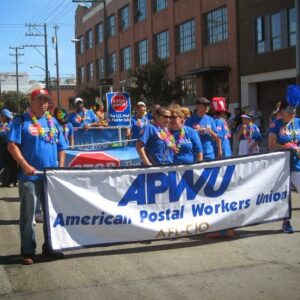September 1, 2016
To Open Local Negotiations or Not?
(This article first appeared in the September-October 2016 issue of The American Postal Worker magazine.)
With the 2015-2018 national contract now settled, locals must decide whether or not they wish to open local negotiations with the Postal Service.
Locals should consider the following:
- Is the current Local Memorandum of Understanding (LMOU) – the local contract – working well for the local?
- Is the local agreement in conflict or inconsistent with new provisions of the 2015-2018 National Agreement? (If so, the local language must be made consistent with the new Collective Bargaining Agreement.)
- Is the local prepared to show in negotiations – and perhaps in arbitration – that the union’s proposed changes are necessary and will work better than the current provisions?
However, even if locals don’t wish to open negotiations, they should prepare for local bargaining, in the event management requests to open negotiations.
A “Guide to Local Negotiations” contains pointers that should be helpful, particularly for those locals without a local agreement and for local officers who may be negotiating for the first time. The guide contains extensive information on the 22 items that are mandatory subjects for local negotiations.
The guide deliberately avoids giving instructions on what locals should negotiate because local negotiations should result in a contract that meets local needs, not any national agenda. Every local has unique circumstances that may affect local negotiations, such as installation size, the relationship with management, and varying conditions.
The guide refers to “wins” and “losses” local unions have experienced in their efforts to obtain new provisions or retain existing provisions in their LMOUs. The losses aren’t meant to discourage local negotiators, but to make you aware of problems that may arise when presenting certain arguments.
Preparing for Local Negotiations
To get ready for local negotiations, local leaders should follow the steps below.
1. Review your current LMOU, item by item.
2. Gather any necessary information.
3. Decide whether you wish to add, change or delete items from your LMOU. If you decide not to make any changes, send a letter requesting to carry forward your current LMOU.
4. Appoint or elect, as appropriate, a Negotiating Committee. (All crafts should be included.)
5. Select a chief spokesperson.
6. Set goals and priorities.
7. Anticipate management’s goals and prepare appropriately.
8. If you decide to negotiate changes, send a notice to the postmaster notifying him or her that you intend to negotiate a new LMOU.
9. Prepare proposals.
10. Organize a record-keeping system.
11. Meet with management to establish ground rules.
12. Review your goals, proposals, strategy, and the role of each member of the negotiating team, until all the team members feel comfortable.
When reviewing your current LMOU item by item, consider the following:
a. Has the particular provision worked well?
b. Has the language been a source of disputes and grievances?
c. What was the disposition of grievances filed?
d. Does the number of grievances indicate a particular problem with an item?
e. Have members or stewards complained about the language or suggested changes?
f. Has the provision or a related topic come up at union meetings, labor-management meetings, etc.?
g. Is the provision fair to all members?
h. If continued without change, would the provision meet union members’ needs through September 2018 and several months following September 2018 until the next contract’s LMOU negotiations end?
i. Is the language consistent with new or amended provisions of the 2015-2018 National Agreement?
j. Have any changes in the National Agreement affected your LMOU?
k. How long has the language been in your LMOU?
l. During the life of the 2010 contract, were there changes (such as excessing, closing of a unit, transferring work, a new building, etc.) that had an impact on your local memo?
m. Will there be changes during the life of the 2015-2018 contract (excessing, closing a unit or station, adding new units, changing schedules, removing Part-Time Regulars and Part-Time Flexibles, adding Non-Traditional Full-Time (NTFT) employees and Postal Support Employees, etc.) that will affect your LMOU? For example, if NTFTs and/or PSEs will be working in a facility and/or PTFs and/or PTRs will be eliminated from certain crafts in that facility, will the presence of the NTFTs and/or PSEs or the absence of PTRs and/or PTFs impact the number of employees eligible for vacations, or affect holiday and overtime schedules?
If your review leaves you with questions about whether specific language worked well, submitting a Request for Information may help. It will probably take some time for management to compile the info, so make your request early (well before negotiations begin) and only if necessary. 4


